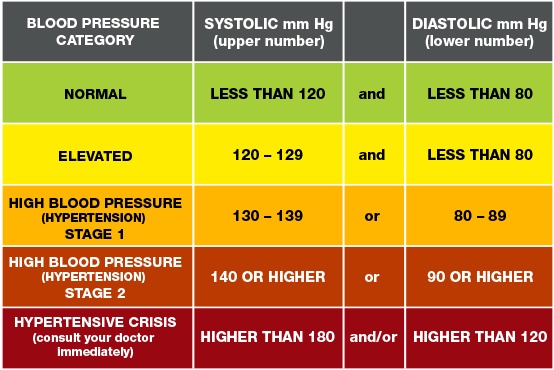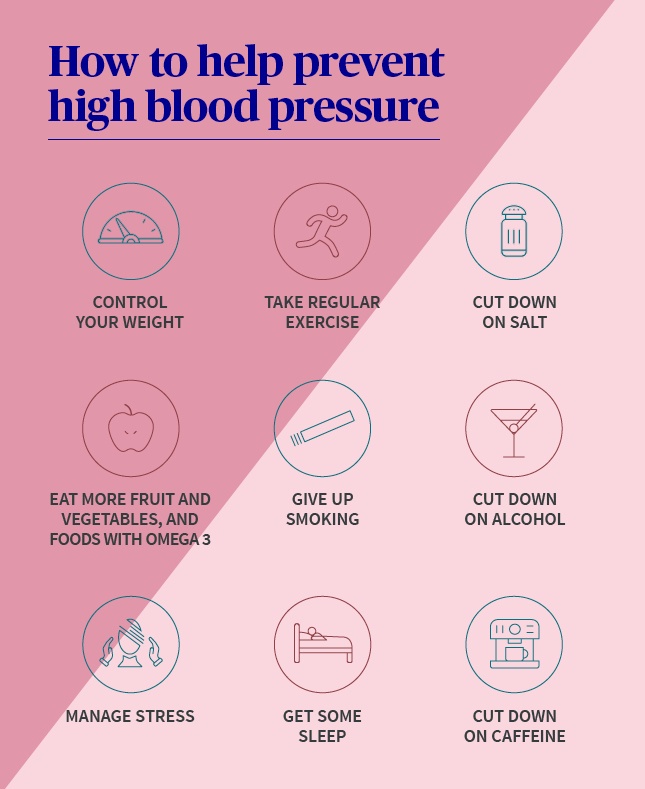There is a chronic condition known as the silent killer. This condition is high blood pressure. But it doesn’t have to be. Find out why and read all about high blood pressure.
What is Blood Pressure?
Blood pressure is the force of circulating blood against the walls of blood vessels, mainly arteries. The majority of this pressure is a consequence of the heart pumping blood through the circulatory system.
What is High Blood Pressure?
High blood pressure, aka hypertension, is blood pressure that is elevated higher than normal. It is a condition where the power or force of the blood against the artery walls is excessive. An individual’s blood pressure changes throughout the day based on their activities. However, having blood pressure measures that are consistently above normal may result in a diagnosis of high blood pressure (or hypertension).
The higher an individual’s blood pressure levels, the more risk they have for other health issues, such as stroke, heart disease, and heart attack.
There are more than three million cases annually in the US.
Detecting High Blood Pressure
The best way to diagnose high blood pressure is to measure the blood pressure by having it tested.
Below is how a blood pressure test is usually performed:
- A blood pressure reading is achieved with a pressure cuff (sphygmomanometer).
- The cuff is then placed around the upper arm during the test before being manually or electronically inflated.
- Once the cuff is inflated, it constricts the brachial artery, temporarily terminating blood flow.
- The air in the cuff is then slowly released while the individual performing the measurement listens with a stethoscope or monitors an electronic readout.
The blood pressure reading is then recorded as two (2) numbers:
- Systolic blood pressure (the top number) — indicates how much pressure the blood is applying against the artery walls during heartbeats.
- Diastolic blood pressure (the bottom number) — indicates how much pressure the blood is applying against the artery walls while the heart is resting between beats.
In general, more consideration is given to systolic blood pressure (the first number) as a major risk factor for cardiovascular disease for individuals over 50. In most individuals, systolic blood pressure rises progressively with age, attributable to the increasing stiffness of large arteries, long-term buildup of plaque, and increased cardiac and vascular disease incidence.
However, a physician can use either an elevated systolic or an elevated diastolic blood pressure reading to diagnose high blood pressure. According to recent studies, the risk of death from ischemic heart disease and stroke doubles with every 20 mm Hg systolic or 10 mm Hg diastolic increase among individuals aged 40 to 89.
Note: the abbreviation mm Hg means millimeters of mercury. Mercury was utilized in the 1st accurate pressure gauges and continues to be used in medicine today as the standard unit of measurement for pressure.
Blood pressure categories
There are five (5) blood pressure categories as established by the American Heart Association, which are:
Normal – Blood pressure numbers less than 120/80 mm Hg are considered within the normal range. If the results fall into this category, stay with heart-healthy habits such as following a balanced diet and exercising regularly.
Elevated – Elevated blood pressure readings occur when they consistently range from 120-129 systolic and less than 80 mm Hg diastolic. Individuals with elevated blood pressure are prone to develop high blood pressure unless they take steps to manage the condition.
Hypertension Stage 1 – Hypertension Stage 1 is when blood pressure regularly ranges from 130-139 systolic or 80-89 mm Hg diastolic. At this stage of high blood pressure, physicians are likely to prescribe lifestyle changes. They may consider adding blood pressure medication based on the possibility of atherosclerotic cardiovascular disease (ASCVD), like a heart attack or stroke.
Hypertension Stage 2 – Hypertension Stage 2 is when blood pressure persistently scales at 140/90 mm Hg or higher. At this level of high blood pressure, physicians are prone to prescribe a blend of blood pressure medications and lifestyle changes.
Hypertensive crisis – This stage of high blood pressure requires medical attention. If an individual’s blood pressure readings suddenly exceed 180/120 mm Hg, it is required to wait five minutes and then test the blood pressure again. If the readings are still excessively elevated, a doctor must be contacted immediately as this individual could be experiencing a hypertensive crisis.
Suppose an individual’s blood pressure is higher than 180/120 mm Hg and they are experiencing signs of possible organ damage such as chest pain, shortness of breath, back pain, numbness/weakness, change in vision, or difficulty speaking. In that case, they should not wait to see if their pressure declines on its own—call 911.
Symptoms of High Blood Pressure
Generally, high blood pressure (HBP or hypertension) has no apparent indicators to denote something wrong. This is why it is labeled as “the silent killer.” The best ways of protection are being aware of the risks and making changes that matter.
Knowing the Risks and Causes
General genetic and physical risk Characteristics for high blood pressure encompass:
- Family history. If an individual’s parents or other close blood relatives have high blood pressure, there is an increased chance that that individual will acquire it. However, it is important to note that it is not always HBP itself that runs through families, but the harmful lifestyles that lead to it (e.g., diet, lack of exercise, etc.). These lifestyle habits are often passed down through generations.
- Age. The older the individual, the more likely they are to get diagnosed with high blood pressure. As individuals age, blood vessels slowly lose some of their elasticity, leading to increased blood pressure. On the other hand, children may also acquire high blood pressure.
- Gender. Up until age 64, men are more prone to acquire high blood pressure than women are. At 65 and older, women are more prone to acquire high blood pressure. Find out more regarding women and high blood pressure.
- Race. African-Americans tend to form high blood pressure more frequently than individuals of any other racial background in the United States. It additionally tends to be more acute in African Americans, and some medications are not as effective in treating HBP in African-Americans.
- Chronic kidney disease (CKD) HBP can become apparent as a result of kidney disease. Additionally, having HBP can also cause further kidney damage.
Modifiable risk factors that can be changed to help prevent and manage high blood pressure includes:

- Lack of physical activity: Not getting enough physical activity as part of a lifestyle increases the risk of acquiring high blood pressure. Physical activity is immensely advantageous for the heart and circulatory system in general, and blood pressure is no exception.
- An unhealthy diet, particularly one high in sodium: Good nutrition from various sources is vital to one’s health. A diet that is excessive in salt consumption, in addition to calories, saturated and trans fat, and sugar, carries an additional risk of high blood pressure. Alternatively, making healthy food choices can effectively assist in lowering blood pressure.
- Being overweight or obese: Carrying excess weight puts an additional strain on the heart and circulatory system, leading to serious health problems. It additionally increases the risk of cardiovascular disease, high blood pressure, and diabetes. Learn more about managing your weight.
- Consuming excessive alcohol: Regular, heavy alcohol consumption may cause numerous health issues, including heart failure, stroke, and an irregular heartbeat (arrhythmia). It can cause blood pressure to increase radically and increase the risk of alcoholism, obesity, cancer, suicide, and accidents.
- Sleep apnea: Obstructive sleep apnea can increase the probability of developing HBP and is frequent in individuals with resistant hypertension.
- High cholesterol: More than half of people with HBP additionally have high cholesterol.
- Diabetes: Most individuals with diabetes also develop HBP.
- Smoking and tobacco use: Using tobacco may cause blood pressure to increase temporarily and may also contribute to damaged arteries. Secondhand smoke, contact with other individuals smoke additionally elevates the risk of heart disease for nonsmokers.
- Stress: Stress is not inevitably a bad thing in and of itself. However, excessive stress can play a role in increased blood pressure. Additionally, undue stress can advance behaviors that increase blood pressure, such as physical inactivity, poor diet, and using tobacco or drinking excessive alcohol. Socioeconomic status and psychosocial stress can affect access to basic living necessities, medication, healthcare providers, and the capacity to adopt healthy lifestyle changes.
Controlling these conditions can prevent and even reverse high blood pressure. Discipline and persistence are the keys.
A minute number of high blood pressure cases are secondary hypertension, which is high blood pressure that is caused by another medical condition that was first present. Examples include certain heart defects, kidney disorders, and pregnancy-induced hypertension (PIH). In most cases, if the situation causing the high blood pressure is resolved, the patient’s blood pressure will also normalize. Most of the discussion in this article and throughout this website refers to primary hypertension, high blood pressure with no condition linked cause. Most individuals with high blood pressure have a form of primary hypertension.
Questions, comments, concerns, or experiences with high blood pressure you would like to share can be left below.
For more articles, click onto www.universal-health-products.com
Good Health!!
I do not know how to thank you. I went to see the doctor last week – and I was told I have got high blood pressure. I am going to follow some of your suggestions on how to minimize my condition, including physical exercises (which I was not doing), my diet (which was terrible), not getting proper rest (Sleep apnea), and inability to manage my stress.
Thank you very much for this informative article and I will go over it again during my spare time.
Dave – I am so happy to know that the article has helped you manage your condition. I wish you all the best in overcoming this health issue. If there is anything I can help you with further, please get in touch.
This is a great article. I have family members that suffer from high blood pressure. You have made it easier to understand what high blood pressure is and how it works. I will take this article into consideration and let them know what I have learnt. Thank you for this and have a great day.
Hello again Daniel, I am happy that the article has been informative for you. I pray that it is advantageous for your family members as well.
Best wishes to you, and thanks for commenting!